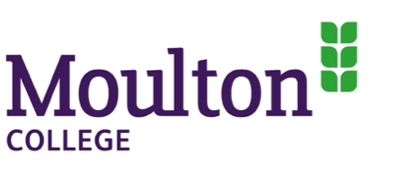Wednesday 22 May 2024
Posted by Moulton College
Exams can be one of the most stressful times in a students life, so with exam season well under way we've put together an essential guide to surviving exams in 2024.
Create a Study Schedule
One of the most effective ways to manage your time and reduce stress is by creating a study schedule. Break down your study material into manageable chunks and allocate specific times for each subject. Prioritize subjects based on their difficulty and the amount of material you need to cover. Stick to your schedule as closely as possible, but also allow some flexibility for unexpected events.
Stay Organised
Keeping your study materials organized is crucial. Use folders, binders, or digital tools to keep track of notes, assignments, and other resources. A clutter-free study space can help you focus better and reduce the time spent looking for materials.
Practice Active Learning
Passive reading isn't the most effective way to study. Engage with the material through active learning techniques such as summarizing information in your own words, teaching concepts to a friend or family member, or creating mind maps and flashcards. These methods can help reinforce your understanding and improve retention.

Take Regular Breaks
It's important to give your brain time to rest and recharge. A great technique can be studying for 25 minutes, then taking a 5-minute break. After four cycles, take a longer break of 15-30 minutes. This approach can improve your focus and prevent burnout.
Stay Healthy
Physical health plays a significant role in academic performance. Ensure you're eating balanced meals, staying hydrated, and getting at least 7-8 hours of sleep each night. Regular physical activity, even if it's just a short walk, can help reduce stress and improve cognitive function.
Practice Past Papers
Practicing past exam papers can give you a sense of the exam format and the types of questions that may be asked. Time yourself under exam conditions to improve your time management skills. Review your answers to identify areas where you need further study.
Seek Help When Needed
Don’t hesitate to ask for help if you’re struggling with certain topics. Reach out to your teachers, classmates, or look for online resources like tutorials and forums. Sometimes a different perspective can make a big difference in understanding complex material.
Stay Positive and Manage Stress
Maintaining a positive mindset is crucial. Practice stress-relief techniques such as deep breathing, meditation, or yoga. Remind yourself of your goals and the progress you've made so far. Surround yourself with supportive friends and family who can offer encouragement.
Prepare for Exam Day
Make sure you’re well-prepared for the actual exam day. Pack your bag with all necessary supplies the night before, including pens, pencils, erasers, a calculator, etc. And arrive at the exam location early to avoid last-minute stress.
By taking a balanced approach to studying, you can reduce stress and improve your performance. Remember, exams are a marathon, not a sprint. Take care of your mind and body, stay organized, and keep a positive outlook. Good luck!
If you are struggling with exam pressure there is lots of help information online and via our exams team. Find out more here.









